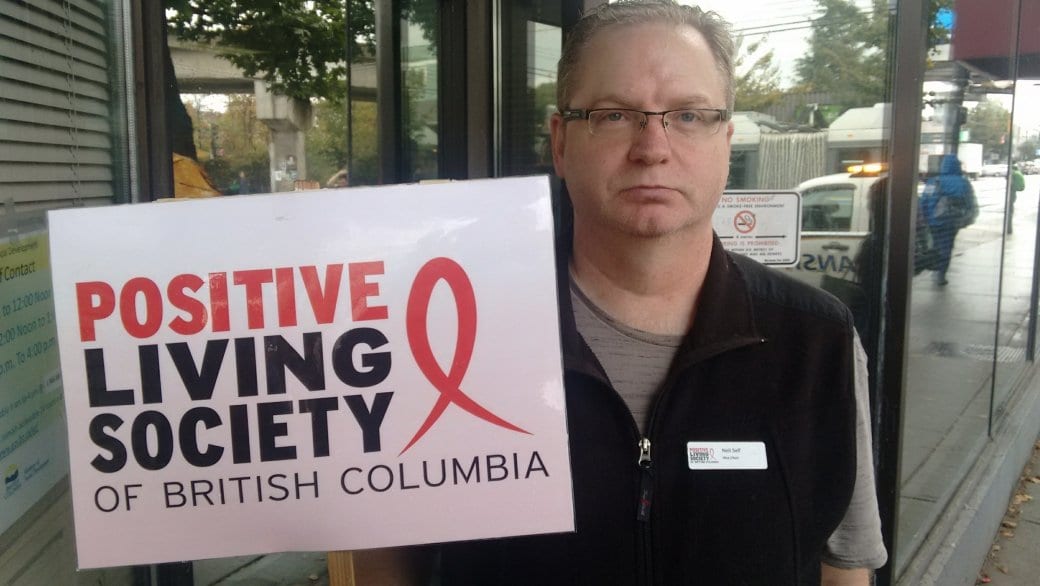Western Canada’s largest HIV support group is vying for public support as it deals with an unanticipated financial crisis that could impact its services.
Positive Living BC — which serves over 5,700 people living with HIV and AIDS — has seen a stark decrease in donations over the past year while operational costs continue to soar, according to its annual report released last week.
Cuts to administration and services may result, unless the organization can find other ways to boost revenue, according to Neil Self, the organization’s board chair.
The financial challenge comes at a crucial juncture in the organization’s history. It’s planning to move out of its temporary location in the Downtown Eastside next year to a new building at 701 Seymour St — the same site it once occupied before construction commenced on a 15-story condo tower in 2014.
It also comes as government funding is expected to decrease into next year under new funding requirements outlined by British Columbia’s Provincial Health Services Authority, the society’s principal funder.
“The only way we’re going to be able to do this is to be able to get the support of the community at large,” Self says.
Positive Living posted a $97,000 deficit this year, primarily due to a dive in donations, according to Self. But that’s down roughly $90,000 from 2015, when it posted an approximate $185,000 deficit in order to cover its move to its temporary location at 805 E Hastings St, Self says.
Some of the 2015 deficit is also attributable to a human resources case still before the courts, he adds, but can’t elaborate on the case.
“Combine that with the lack of funding we’re getting with our AIDS Walk and it puts us behind the eight-ball right from the start,” he says.
The AIDS Walk is the organization’s largest annual fundraiser. In an effort to boost donations this year, Positive Living will rebrand the walk as the Scotiabank AIDS Walk to Thrive, and include a music festival and a health fair.
The AIDS Walk to Thrive takes place Sept 25, 2016. All proceeds will go directly into the organization’s community health fund, which provides financial support for community members living with HIV/AIDS to access health services.
While proceeds have been decreasing steadily over the years, the community health fund took a stark dive this past year — by $30,000.
Total donations and fundraising have decreased by around $130,000 since 2015.
The decrease in donations is mainly attributed to the perception that HIV support doesn’t need the same amount of funding it once did, Self says.
“Because of the great medical advancements in HIV/AIDS over the last 10–15 years . . . I don’t think people realize that people with HIV still need support to get through, and that has a negative affect on our fundraising,” he says.
Positive Living has also seen a decrease in salaries and benefits by about $50,000 since last year, due to several employees stepping down, he says.
The organization is currently in negotiations with PHSA over a new funding contract for 2017. PHSA spokesperson Vincent Chou says the contract will reflect the new funding model rolled out by PHSA two years ago, which requires “evidence-based measurements” in order for groups to be awarded funding. He couldn’t elaborate on the details of the contract, which is still being negotiated.
According to Self, the new model means the organization was only able to apply for roughly $1 million in funding, down from $1.3 million, which it was previously awarded.
With the upcoming move expected to accrue additional expenses, he underscores the importance of donating in order to maintain the organization’s community-based services.
“We the board recognize that model and we’re looking at different sources of funding and services . . . even changing our services around,” he says. “But the number one thing we need is the community behind us.”

 Why you can trust Xtra
Why you can trust Xtra


